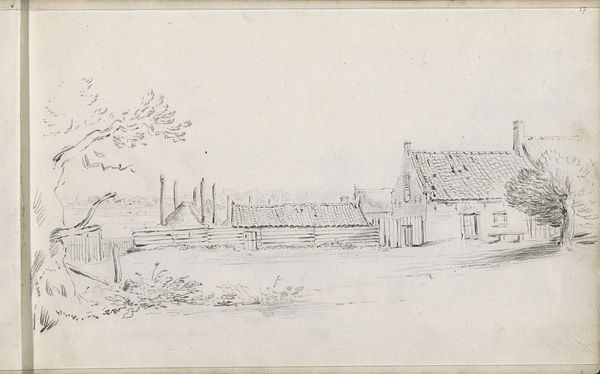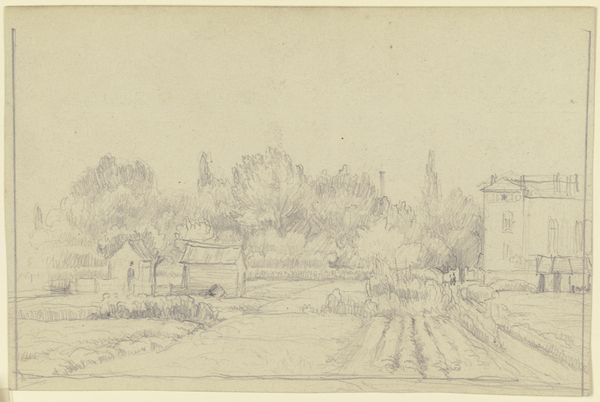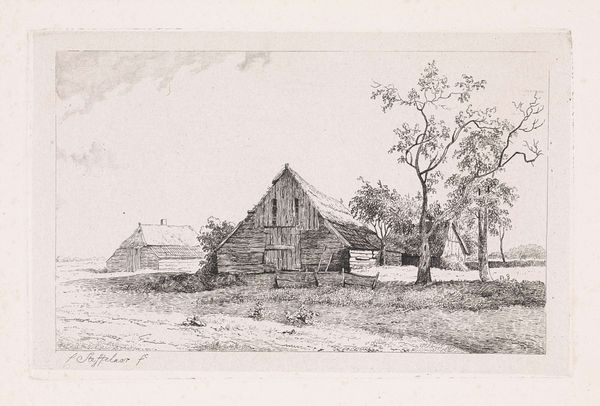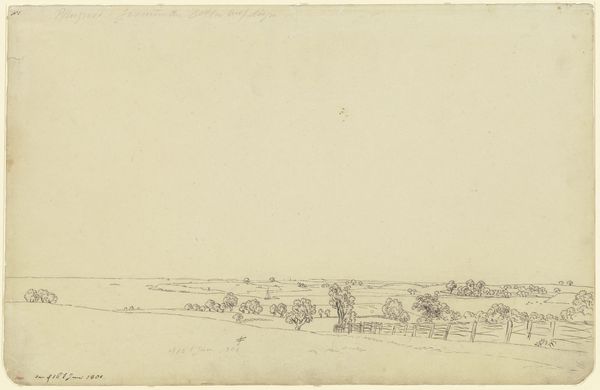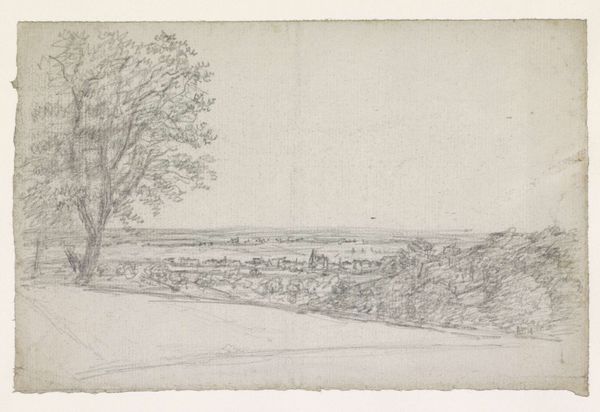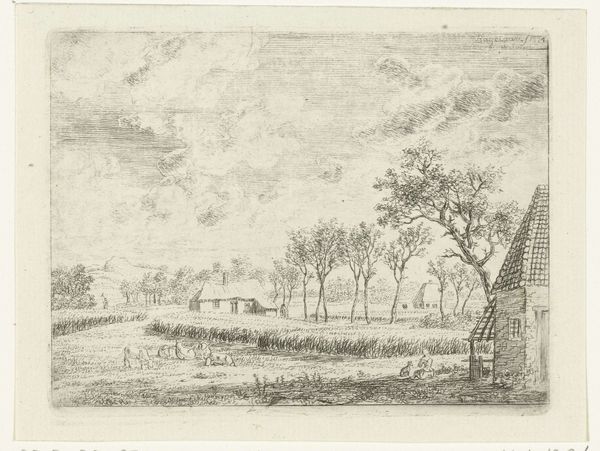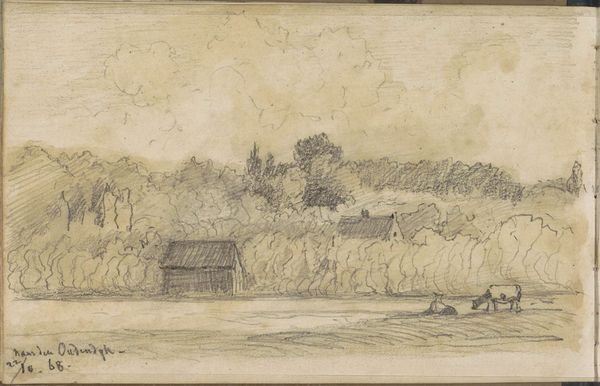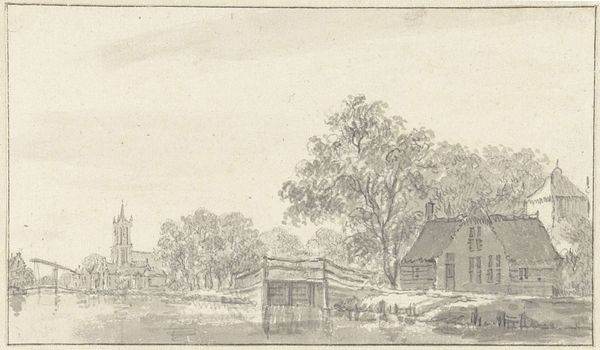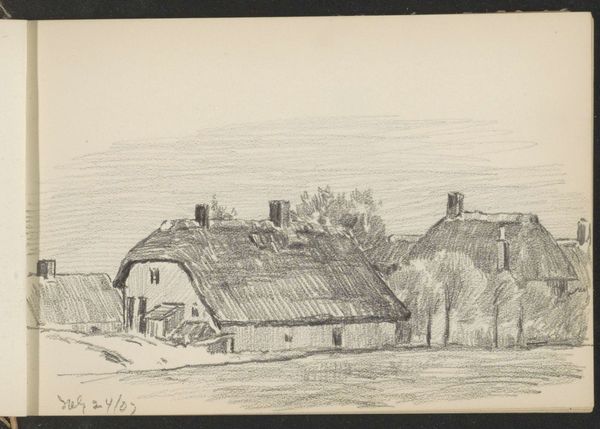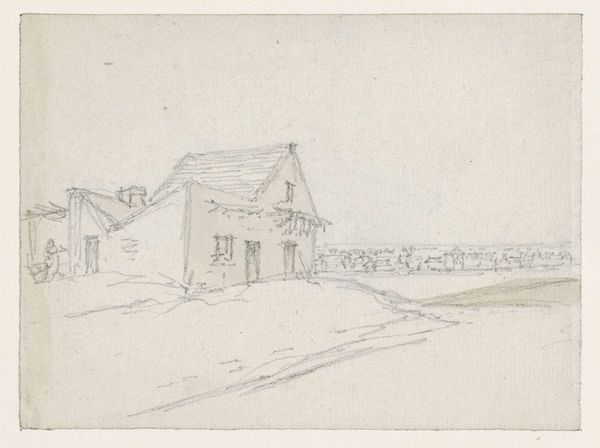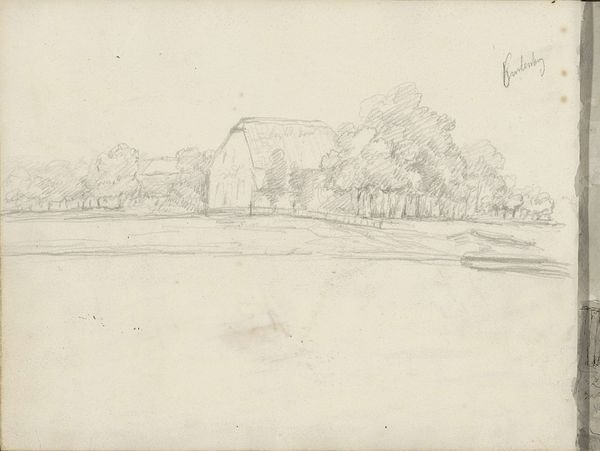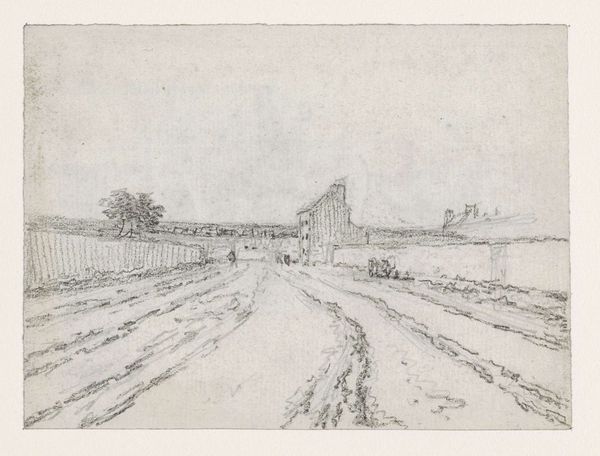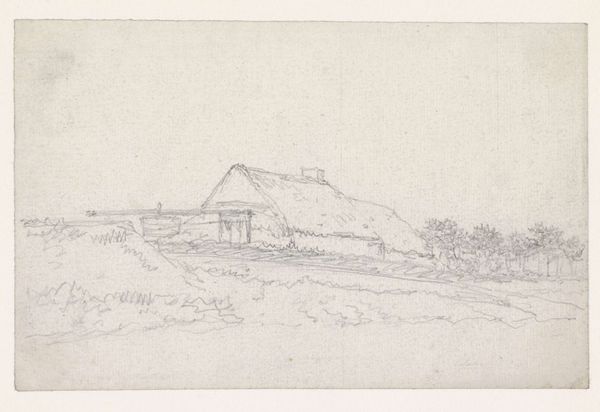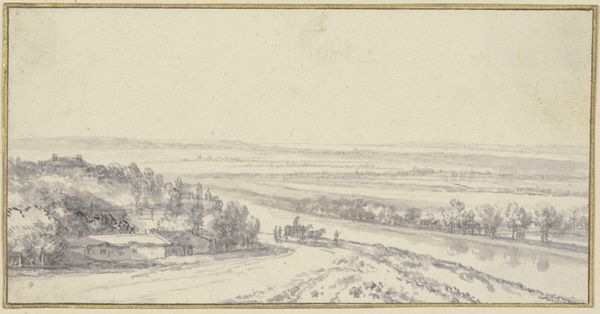
drawing, pencil
#
drawing
#
aged paper
#
toned paper
#
light pencil work
#
quirky sketch
#
pencil sketch
#
sketch book
#
landscape
#
personal sketchbook
#
romanticism
#
pen-ink sketch
#
pencil
#
sketchbook drawing
#
sketchbook art
#
realism
Dimensions: height 102 mm, width 170 mm
Copyright: Rijks Museum: Open Domain
Editor: Here we have Georges Michel’s “Groep van boerderijen in akkers,” created sometime between 1773 and 1843. It's a pencil drawing on what appears to be toned paper. There's a certain quietness about it. It feels like a fleeting observation, almost like a page torn from a personal sketchbook. What's your interpretation? Curator: Indeed, this sketch presents a glimpse into the rural landscape of the time, but it’s important to consider what was *not* depicted. Notice how the labor of the fields is absent. Where are the people? Instead, we are given a quiet scene that romanticizes rural life. Given the timeframe, can we connect this to larger shifts of urbanization, of industry, perhaps even a growing nostalgia for agrarian life? Editor: So you're suggesting it's less a straightforward depiction and more of an idealized image being presented to an increasingly urban audience? Curator: Precisely! And how might Michel's artistic choices—the light pencil work, the aged paper—contribute to this sense of nostalgia and romanticism? Think about the social and political messages embedded within what might appear as a simple landscape drawing. Is he challenging the industrial movement? Or just selling an idea? Editor: That’s fascinating! I was so focused on the drawing itself that I didn’t think about the audience or the statement it might be making about societal changes. Curator: The politics of imagery are often subtle, aren't they? Considering the social and cultural context adds a deeper layer of meaning to even the simplest sketch. Editor: Definitely gave me a new lens for observing what's present and absent in art. Curator: A good historian is always on the lookout for not only the said, but the unsaid!
Comments
No comments
Be the first to comment and join the conversation on the ultimate creative platform.
